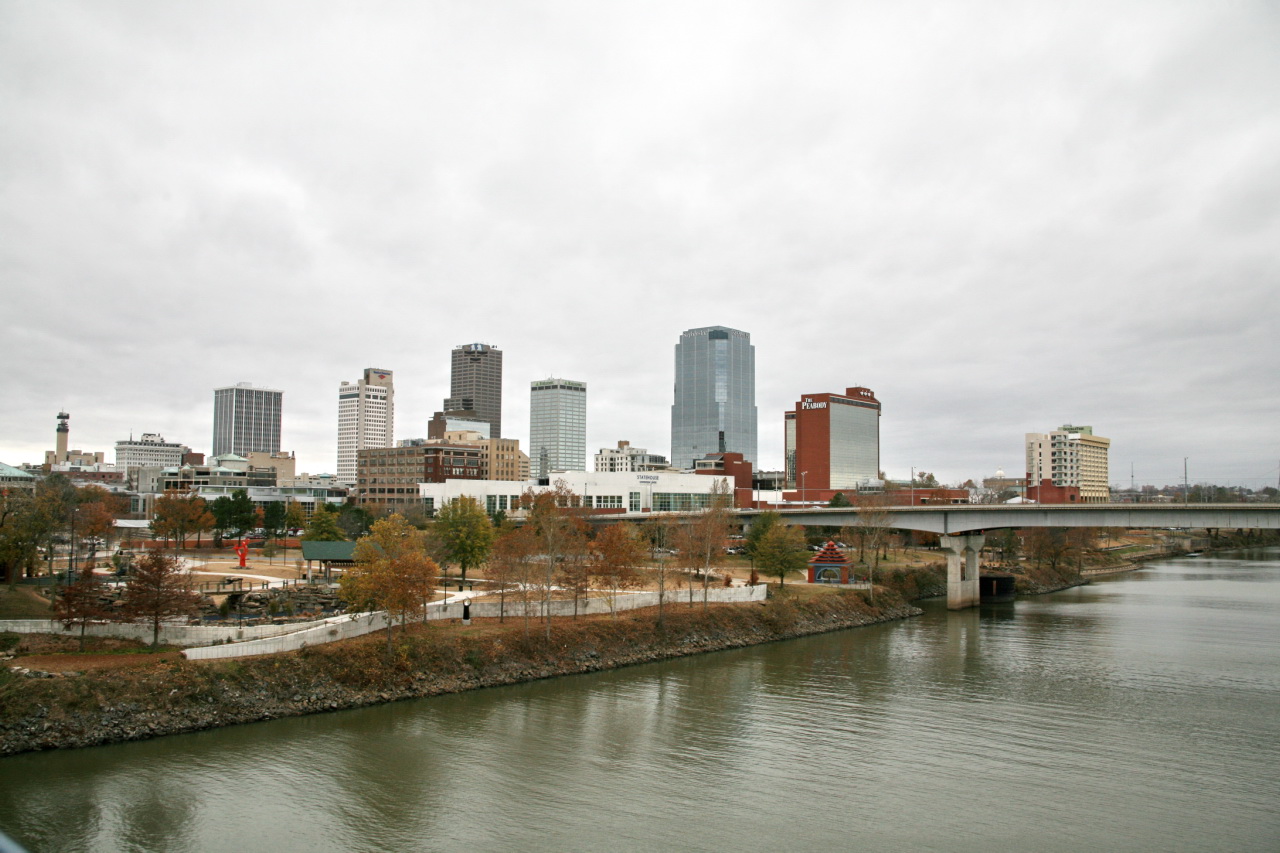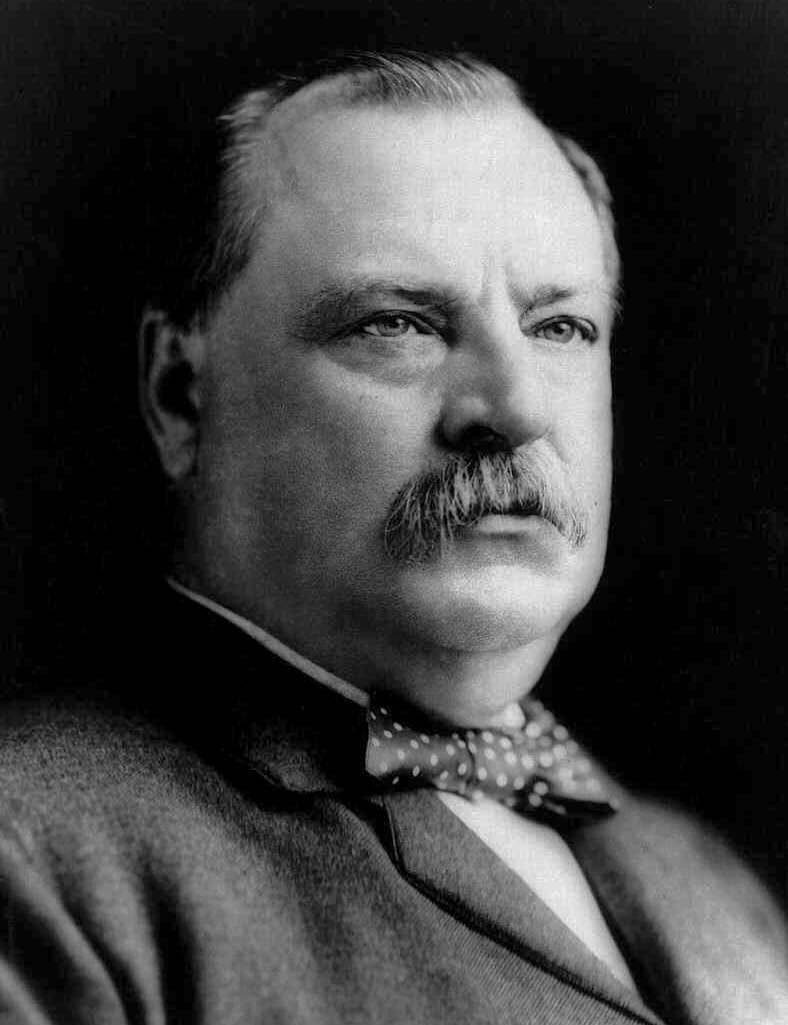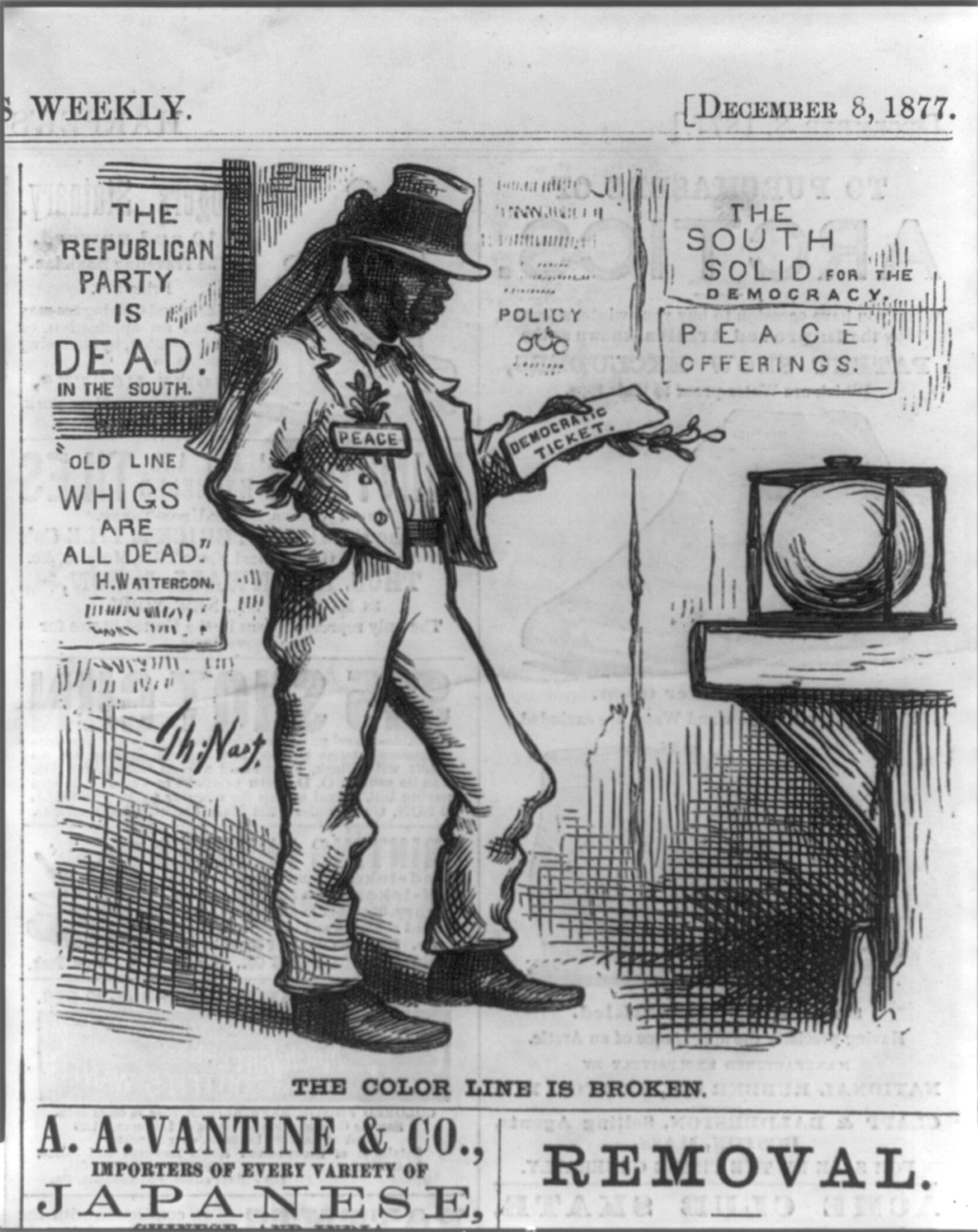|
Arkansas Democrats
The Democratic Party of Arkansas is the affiliate of the Democratic Party in the state of Arkansas. The current party chair is Grant Tennille. Former U.S. president Bill Clinton was born in Arkansas, and served as state governor from 1979 to 1981 and 1983 to 1992. Arkansas was historically a Democratic stronghold, voting Democratic in all 23 presidential elections from 1876 through 1964. However, in the 21st century the party has seen its electoral power steadily decline in the state. Democrats control no statewide or federally elected offices in Arkansas, and have minorities in both chambers of the state legislature. History Early statehood Arkansas began its statehood with a strong Democratic dominance in politics. Before Arkansas became a state on June 15, 1836, its politics was dominated by a small group commonly called " The Family" or "The Dynasty" until the American Civil War. The founder of this party was James Conway, who was inspired by the death of his older brother, ... [...More Info...] [...Related Items...] OR: [Wikipedia] [Google] [Baidu] |
Little Rock, AR
Little Rock is the List of capitals in the United States, capital and List of municipalities in Arkansas, most populous city of the U.S. state of Arkansas. The city's population was 202,591 as of the 2020 census. The six-county Central Arkansas, Little Rock metropolitan area is the Metropolitan statistical area, 81st-most populous in the United States with 748,031 residents according to the 2020 census. As the county seat of Pulaski County, Arkansas, Pulaski County, the city was incorporated on November 7, 1831, on the south bank of the Arkansas River close to the state's geographic center in Central Arkansas. The city derived its name from a rock formation along the river, named The Little Rock, the "Little Rock" by the French explorer Jean-Baptiste Bénard de la Harpe in 1722. The capital of the Arkansas Territory was moved to Little Rock from Arkansas Post, Arkansas, Arkansas Post in 1821. Little Rock is a cultural, economic, government, and transportation center within A ... [...More Info...] [...Related Items...] OR: [Wikipedia] [Google] [Baidu] |
James Sevier Conway
James Sevier Conway (December 9, 1796 – March 3, 1855) was an American politician who served as the first governor of Arkansas from 1836 to 1840. Early life James Sevier Conway was born on December 4, 1796, in Greene County, Tennessee, to Thomas and Ann ( Rector) Conway. Conway's father was born in Pittsylvania County, Virginia, in 1771. His paternal ancestors originated in Conwy, Wales. Among Conway’s siblings were politicians Elias N Conway, William B Conway and Henry W Conway. One of his cousins was Henry M Rector, the sixth governor of Arkansas. Thomas employed private tutors to teach his seven sons and three daughters. In 1818, the family moved to St. Louis, where Conway learned the art of land surveying from his uncle William Rector, surveyor-general in Illinois, Missouri, and Arkansas. In 1820, Conway resigned a Cole County, Missouri, circuit clerk's position to serve as deputy-surveyor in the newly established Arkansas Territory, where he purchased a tract of la ... [...More Info...] [...Related Items...] OR: [Wikipedia] [Google] [Baidu] |
Bourbon Democrat
Bourbon Democrat was a term used in the United States in the later 19th century and early 20th century (1872–1904) to refer to members of the Democratic Party who were ideologically aligned with fiscal conservatism or classical liberalism, especially those who supported presidential candidates Charles O'Conor in 1872, Samuel J. Tilden in 1876, President Grover Cleveland in 1884, 1888, and 1892 and Alton B. Parker in 1904. Bourbon Democrats were promoters of a form of ''laissez-faire'' capitalism which included opposition to the high-tariff protectionism that the Republicans were then advocating as well as fiscal discipline. They represented business interests, generally supporting the goals of banking and railroads, but opposing subsidies and trade protectionism. They opposed American imperialism and overseas expansion, fought for the gold standard against bimetallism, and promoted what they called "hard" and "sound" money. Strong supporters of states' rights and reform mov ... [...More Info...] [...Related Items...] OR: [Wikipedia] [Google] [Baidu] |
Redeemers
The Redeemers were a political coalition in the Southern United States during the Reconstruction era of the United States, Reconstruction Era that followed the American Civil War. Redeemers were the Southern wing of the Democratic Party (United States), Democratic Party. They sought to regain their political power and enforce white supremacy. Their policy of Redemption was intended to oust the Radical Republicans, a coalition of Freedman, freedmen, "carpetbaggers", and "scalawags". They were typically led by White yeoman, yeomen and dominated Southern politics in most areas from the 1870s to 1910. During Reconstruction, the South was under occupation by federal forces, and Southern State governments of the United States, state governments were dominated by Republicans, elected largely by freedmen and allies. Republicans nationally pressed for the granting of political rights to the newly freed slaves as the key to their becoming full citizens and the votes they would cast for t ... [...More Info...] [...Related Items...] OR: [Wikipedia] [Google] [Baidu] |
Winthrop Rockefeller
Winthrop Rockefeller (May 1, 1912 – February 22, 1973) was an American politician and philanthropist. Rockefeller was the fourth son and fifth child of American financier John D. Rockefeller Jr. and Abby Aldrich Rockefeller. He was one of the grandchildren of Standard Oil co-founder John D. Rockefeller. As an entrepreneur in Arkansas, he financed many local projects, including a number of new medical clinics in poorer areas, before being elected state governor in 1966, as the first Republican governor of Arkansas since Reconstruction. Despite accusations of lacking insight into the concerns of low-income voters, Rockefeller was re-elected in 1968, and went on to complete the integration of Arkansas schools. He ran against his brother and other candidates for the GOP nomination for president in 1968. Early life Winthrop Rockefeller was born in New York, to philanthropists John Davison Rockefeller Jr. and socialite, Abigail Greene "Abby" Aldrich. He is one of the grandsons o ... [...More Info...] [...Related Items...] OR: [Wikipedia] [Google] [Baidu] |
Radical Republican
The Radical Republicans were a political faction within the Republican Party originating from the party's founding in 1854—some six years before the Civil War—until the Compromise of 1877, which effectively ended Reconstruction. They called themselves "Radicals" because of their goal of immediate, complete, and permanent eradication of slavery in the United States. However, the Radical faction also included strong currents of nativism, anti-Catholicism, and support for the prohibition of alcoholic beverages. These policy goals and the rhetoric in their favor often made it extremely difficult for the Republican Party as a whole to avoid alienating large numbers of American voters of Irish Catholic, German, and other White ethnic backgrounds. In fact, even German-American Freethinkers and Forty-Eighters who, like Hermann Raster, otherwise sympathized with the Radical Republicans' aims, fought them tooth and nail over prohibition. They later became known as " Stalwarts". ... [...More Info...] [...Related Items...] OR: [Wikipedia] [Google] [Baidu] |
Solid South
The Solid South was the electoral voting bloc for the Democratic Party (United States), Democratic Party in the Southern United States between the end of the Reconstruction era in 1877 and the Civil Rights Act of 1964. In the aftermath of the Compromise of 1877 and the failure of the Lodge Bill of 1890, Southern Democrats Disenfranchisement after the Reconstruction Era, disenfranchised nearly all blacks in all the former states of the Confederate States of America during the late 19th century and the early 20th century. During this period, the Democratic Party (United States), Democratic Party controlled southern state legislatures and most local, state and federal officeholders in the South were Democrats. This resulted in a Dominant-party system, one-party system, in which a candidate's victory in Democratic Partisan primary, primary elections was tantamount to election to the office itself. White primaries were another means that the Democrats used to consolidate their politic ... [...More Info...] [...Related Items...] OR: [Wikipedia] [Google] [Baidu] |
Radical Reconstruction
The Reconstruction era was a period in History of the United States, US history that followed the American Civil War (1861-65) and was dominated by the legal, social, and political challenges of the Abolitionism in the United States, abolition of slavery and reintegration of the former Confederate States of America, Confederate States into the United States. Reconstruction Amendments, Three amendments were added to the United States Constitution to grant citizenship and equal civil rights to the Freedmen, newly freed slaves. To circumvent these, former Confederate states imposed poll taxes and literacy tests and engaged in terrorism in the United States, terrorism to intimidate and control African Americans and discourage or prevent them from voting. Throughout the war, the Union was confronted with the issue of how to administer captured areas and handle slaves escaping to Union lines. The United States Army played a vital role in establishing a Labour economics, free lab ... [...More Info...] [...Related Items...] OR: [Wikipedia] [Google] [Baidu] |
Powell Clayton
Powell Foulk Clayton (August 7, 1833August 25, 1914) was an American politician, diplomat, and businessman who served as the 9th List of Governors of Arkansas, governor of Arkansas from 1868 to 1871, as a Republican Party (United States), Republican United States Senator for Arkansas from 1871 to 1877 and as United States Ambassador to Mexico from 1897 to 1905. During the American Civil War, he served as a senior Officer (armed forces), officer of United States Volunteers and commanded cavalry in the Trans-Mississippi Theater of the American Civil War, Trans-Mississippi Theater. After the war, he married a woman from Arkansas, purchased a plantation and settled in Jefferson County, Arkansas, Jefferson County. He was active in the Arkansas Republican Party and became governor after military rule was lifted and the Arkansas state constitution was ratified by Congress. He was viewed as a carpetbagger and implemented martial law in Arkansas for four months due to the rise of the K ... [...More Info...] [...Related Items...] OR: [Wikipedia] [Google] [Baidu] |
Reconstruction Era
The Reconstruction era was a period in History of the United States, US history that followed the American Civil War (1861-65) and was dominated by the legal, social, and political challenges of the Abolitionism in the United States, abolition of slavery and reintegration of the former Confederate States of America, Confederate States into the United States. Reconstruction Amendments, Three amendments were added to the United States Constitution to grant citizenship and equal civil rights to the Freedmen, newly freed slaves. To circumvent these, former Confederate states imposed poll taxes and literacy tests and engaged in terrorism in the United States, terrorism to intimidate and control African Americans and discourage or prevent them from voting. Throughout the war, the Union was confronted with the issue of how to administer captured areas and handle slaves escaping to Union lines. The United States Army played a vital role in establishing a Labour economics, free lab ... [...More Info...] [...Related Items...] OR: [Wikipedia] [Google] [Baidu] |
Arkansas Delta
The Arkansas Delta is one of the six natural regions of the state of Arkansas. Willard B. Gatewood Jr., author of ''The Arkansas Delta: Land of Paradox'', says that rich cotton lands of the Arkansas Delta make that area "The Deepest of the Deep South." The region runs along the Mississippi River from Eudora, Arkansas, Eudora north to Blytheville, Arkansas, Blytheville and as far west as Little Rock, Arkansas, Little Rock. It is part of the Mississippi embayment, itself part of the Mississippi Alluvial Plain, Mississippi River Alluvial Plain. The flat plain is bisected by Crowley's Ridge, a narrow band of rolling hills rising above the flat delta plains. Several towns and cities have been developed along Crowley's Ridge, including Jonesboro, Arkansas, Jonesboro. The region's lower western border follows the Arkansas River just outside Little Rock, Arkansas, Little Rock down through Pine Bluff, Arkansas, Pine Bluff. There the border shifts to Bayou Bartholomew, stretching south t ... [...More Info...] [...Related Items...] OR: [Wikipedia] [Google] [Baidu] |
Hill Democrats
The Democratic Party of Arkansas is the affiliate of the Democratic Party (United States), Democratic Party in the state of Arkansas. The current party chair is Grant Tennille. Former U.S. president Bill Clinton was born in Arkansas, and served as state governor from 1979 to 1981 and 1983 to 1992. Arkansas was historically a Democratic stronghold, voting Democratic in all 23 presidential elections from 1876 through 1964. However, in the 21st century the party has seen its electoral power steadily decline in the state. Democrats control no statewide or federally elected offices in Arkansas, and have minorities in both chambers of the state legislature. History Early statehood Arkansas began its statehood with a strong Democratic dominance in politics. Before Arkansas became a state on June 15, 1836, its politics was dominated by a small group commonly called "The Family (Arkansas politics), The Family" or "The Dynasty" until the American Civil War. The founder of this party was Ja ... [...More Info...] [...Related Items...] OR: [Wikipedia] [Google] [Baidu] |








